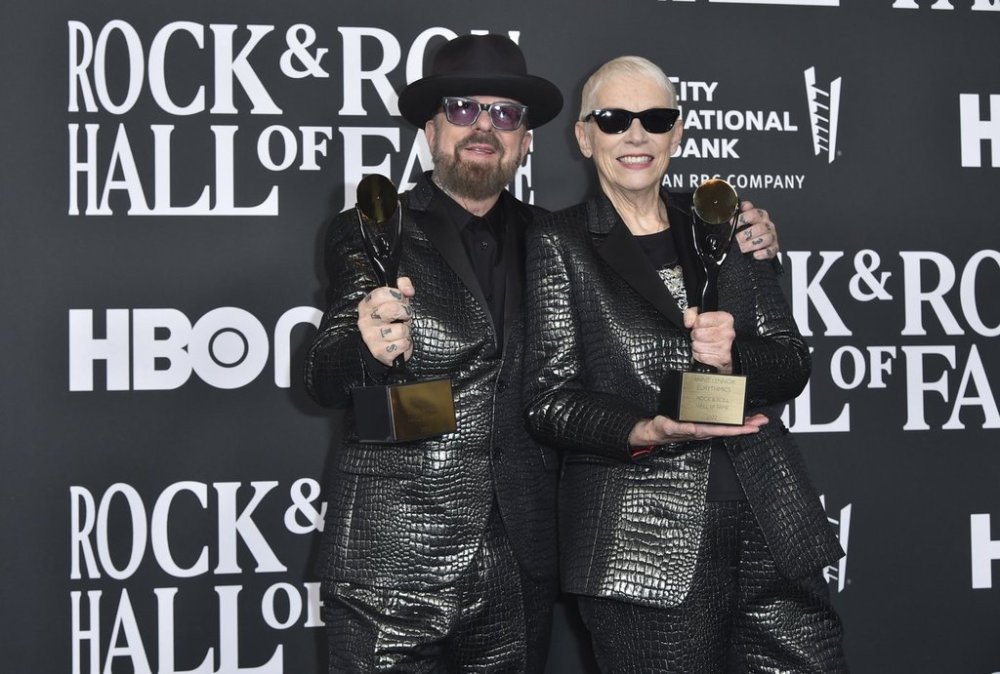British musicians release a silent album to protest plans to let AI use their work
Advertisement
Read this article for free:
or
Already have an account? Log in here »
We need your support!
Local journalism needs your support!
As we navigate through unprecedented times, our journalists are working harder than ever to bring you the latest local updates to keep you safe and informed.
Now, more than ever, we need your support.
Starting at $15.99 plus taxes every four weeks you can access your Brandon Sun online and full access to all content as it appears on our website.
Subscribe Nowor call circulation directly at (204) 727-0527.
Your pledge helps to ensure we provide the news that matters most to your community!
To continue reading, please subscribe:
Add Brandon Sun access to your Free Press subscription for only an additional
$1 for the first 4 weeks*
*Your next subscription payment will increase by $1.00 and you will be charged $20.00 plus GST for four weeks. After four weeks, your payment will increase to $24.00 plus GST every four weeks.
Read unlimited articles for free today:
or
Already have an account? Log in here »
Hey there, time traveller!
This article was published 25/02/2025 (256 days ago), so information in it may no longer be current.
LONDON (AP) — A new album called “Is This What We Want?” features a stellar list of more than 1,000 musicians — and the sound of silence.
With contributions from British artists including Kate Bush, Annie Lennox, Cat Stevens and Damon Albarn, the album was released Tuesday to protest proposed British changes to artificial intelligence laws that artists fear will erode their creative control.
The U.K. government is consulting on whether to let tech firms use copyrighted material to help train AI models unless the creators explicitly opt out.

Critics of the idea fear that will make it harder for artists to retain control of their work and will undermine Britain’s creative industries. Elton John and Paul McCartney are among those who have spoken out against the plan.
The protest album features “almost silence,” said composer and AI developer Ed Newton-Rex, who organized the album. The 12 tracks consist of recordings of empty studios and performance spaces, “to symbolize what we expect will happen if the government’s proposals go through.”
“It’s a mix of artists that everyone’s heard of and, you know, and many musicians who are not household names,” he told The Associated Press. “And I think that’s really important because this issue is going to affect all of us.”
The titles of the 12 tracks spell out: “The British government must not legalize music theft to benefit AI companies.”
Profits will be donated to the musicians’ charity Help Musicians.
“The government’s proposal would hand the life’s work of the country’s musicians to AI companies, for free, letting those companies exploit musicians’ work to outcompete them,” Newton-Rex said.
“It is a plan that would not only be disastrous for musicians, but that is totally unnecessary,” he said. “The U.K. can be leaders in AI without throwing our world-leading creative industries under the bus.”
Britain’s center-left Labour Party government says it wants to make the U.K. a world leader in AI. In December, it announced a consultation into how copyright law can “enable creators and right holders to exercise control over, and seek remuneration for, the use of their works for AI training” while also ensuring “AI developers have easy access to a broad range of high-quality creative content.” The consultation closes on Tuesday.
Publishers, artists’ organizations and media companies, including The Associated Press, have banded together as the Creative Rights in AI Coalition to oppose weakening copyright protections.
Several U.K. newspapers ran wraparounds over their front pages on Tuesday, criticizing the government consultation and saying: “Let’s protect the creative industries — it’s only fair.”
The British government said in a statement that it was “consulting on a new approach that protects the interests of both AI developers and right holders and delivers a solution which allows both to thrive.” It added that “no decisions have been taken.”
___
Associated Press writer Louise Dixon in London contributed to this story.
